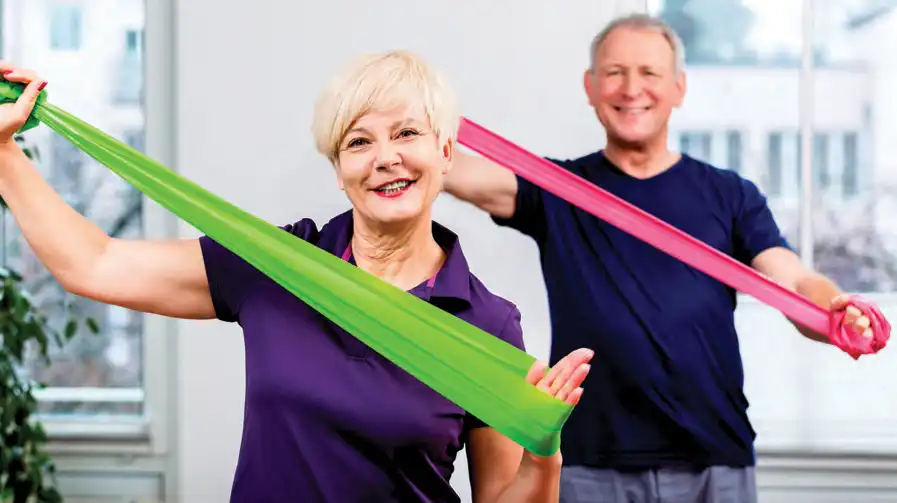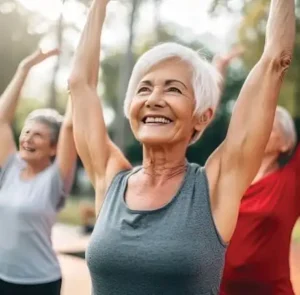
As we age, it’s normal to not have the stamina and agility we enjoyed in our younger years. But getting older doesn’t have to mean becoming a couch potato.
According to the Centers for Disease Control and Prevention (CDC), all older adults—both men and women—can benefit from regular, moderate physical activity. This is true even for people with medical conditions such as arthritis, heart disease, obesity, and high blood pressure.
What are the benefits of exercise for older adults?
Regular activity can positively impact our physical health as well as our mental and emotional wellbeing. It can help give us more energy and greater self-confidence, enabling us to embrace our later years with gusto.
Some of the key benefits of exercise for older adults include:
Prevents Bone Loss: Both men and women lose bone density as they age, with post-menopausal women losing up to 2% each year. Strength training has been shown to counteract this loss and actually restore bone density. Having stronger bones leads to fewer fractures and can also aid in balance. By reducing the risk of falls and injuries, exercise can help seniors live independently for longer.
Relieves Osteoarthritis Pain: While it may seem counterintuitive, moving more can actually help lessen the pain and stiffness of arthritis. Arthritis-friendly exercise includes low-impact cardiovascular activity, strength training, and range-of-motion exercises. How does exercise help arthritis? It takes pressure off aching joints by strengthening the surrounding muscles. Physical activity may also help ease joint inflammation and aid in lubrication, which reduces pain and stiffness.
Helps Prevent Chronic Disease: Exercise provides a protective effect against a host of chronic illnesses, including cardiovascular disease, colon cancer, diabetes, obesity, and hypertension. If you already have a chronic condition, physical activity can minimize symptoms. It can even help reduce cognitive decline. One study found that participants over the age of 60 showed fewer Alzheimer’s disease biomarkers when they performed 30 minutes of exercise every day.
Boosts Immunity: A 2018 study linked moderate exercise with a lower incidence of acute respiratory illness and fewer sick days off of work. The exact way exercise supports immunity is not known. However, there are many theories. Some scientists believe that the anti-inflammatory effects of physical activity enable better immune function. Exercise may also improve the performance of immune cells.

Improves Mood: Simply put, exercise makes us feel good. It can help ease anxiety and depression symptoms, increase relaxation, and create an overall sense of wellbeing. A 2019 study of adult men age 65 and older found that the mood-boosting benefits of exercise continue well into old age, underscoring why it’s so vital to stay active.
Most adults over the age of 65 can exercise safely, even those with chronic conditions and mobility challenges. Before starting any exercise regimen, it’s important to talk with your doctor to learn which options are right for your health and activity level. Then, you’ll be ready to experience the proven and immense benefits of exercise first hand.





 © 2025 Kirby Pines LifeCare Community. All Rights Reserved |
© 2025 Kirby Pines LifeCare Community. All Rights Reserved | 